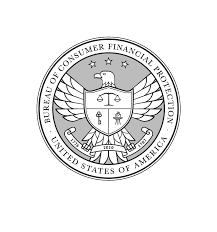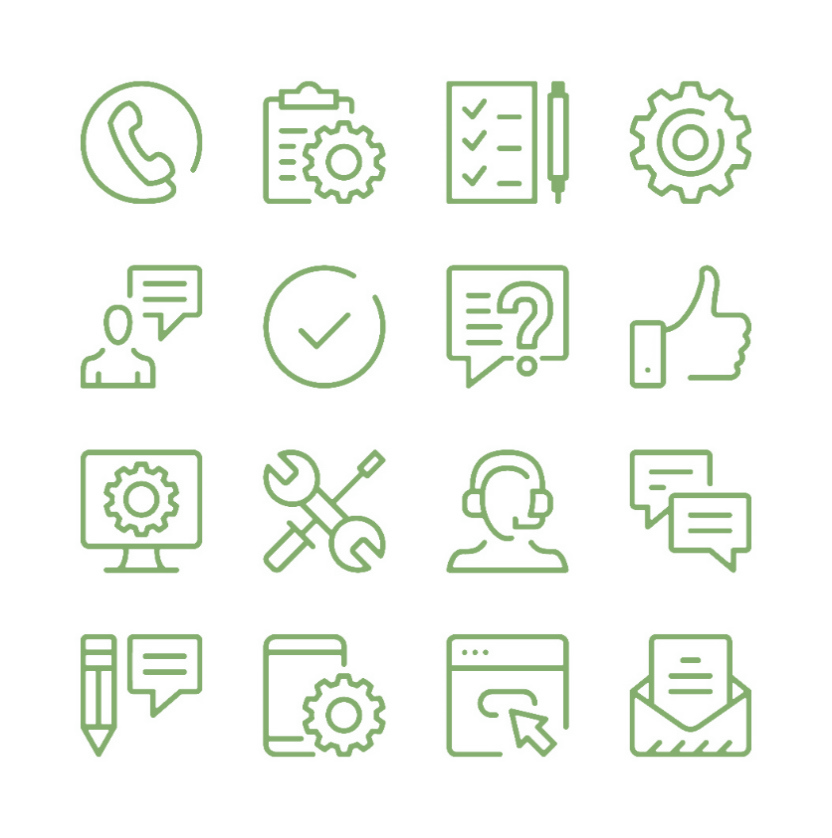Making ends Meet Survey
Making Ends Meet Survey
MEM S5W1 Survey draft
OMB: 3170-0080
Making Ends Meet Sample 5 Wave 1
Note: This survey instrument currently contains 152 questions, any or all of which could be part of the final instrument. We may remove several of the questions for the version that we send to respondents to fit space constraints on the paper version of the survey and to ensure a readable and inviting layout. We may also move some questions from this instrument on to the follow-up survey that is part of this collection, and vice versa. Any changes of this nature that we make will not increase the burden hours associated with this collection.
Because we expect to remove and/or reorder questions, all references to particular questions within the instrument (such as those in instructions to skip specific questions) are shown with placeholders.


Consumer Financial
Protection Bureau
An official U.S. Government agency
Making
Ends Meet Survey





To take the survey online
Mobile
Web
Español
Questions? If you have any technical difficulties, including problems with the website or any questions about the survey, please call 1-855-246-9457 M-F 8:00 a.m. – 8:00 p.m. CST. For TTY assistance, dial 711.
For more information about the CFPB, visit www.consumerfinance.gov.


Consumer
Financial
Protection Bureau
Privacy
Act Statement:
The
Consumer Financial Protection Bureau (Bureau) uses an outside firm
to obtain the names and addresses of a national list of consumers
to contact you for the purpose of participating in this survey. The
information you provide through your responses will assist the
Bureau in understanding people’s experiences when money gets
tight.
The
Bureau will only receive de-identified information. Only your
de-identified information will be combined with other data that the
Bureau has collected in a way that you cannot be identified.
Information
collected on behalf of the Bureau will be treated in accordance
with the System of Records Notice (“SORN”), CFPB.022,
Market and Consumer Research Records,
https://www.federalregister.gov/articles/2012/11/14/2012-27582/privacy-act-of-1974-asamended.
Although the Bureau does not anticipate further disclosing the
information provided, it may be disclosed as indicated in the
Routine Uses described in the SORN. Direct identifying information
will be kept private except as required by law. The Bureau may make
an anonymous version of the survey data publicly available.
This
collection of information is authorized by Pub. L. No. 111-203,
Title X, Sections 1013 and 1022, codified at 12 U.S.C. §§
5493 and 5512.
Participation
in this study is voluntary. You may withdraw participation at any
time.
Paperwork
Reduction Act Statement: According
to the Paperwork Reduction Act of 1995, an agency may not conduct
or sponsor, and a person is not required to respond to a collection
of information unless it displays a valid OMB control number. The
OMB control number for this collection is 3170-XXXX.
It expires on XX/XX/XXXX.
Comments regarding this collection of information, including the
estimated response time, suggestions for improving the usefulness
of the information, or suggestions for reducing the burden to
respond to this collection should be submitted to the Consumer
Financial Protection Bureau (Attention: PRA Office), 1700 G Street
NW, Washington, DC 20552, or by email to [email protected].
5 U.S.C. 552a(e)(3)
-
W
 hy
hy
should I do this?This survey will help us understand your situation and how it may have changed during these uncertain times. Because people’s experiences can vary widely, please fill out the survey even if you have not had financial difficulties. Learning about people’s views and experiences is particularly important in developing policies to help consumers.
W
 ho
should complete this?
ho
should complete this?It is important that this survey is only completed by the person named on the enclosed letter. The survey will take around 20 minutes to complete. Your participation is voluntary. Please do not identify yourself in any way in your response.
H
 ow
will responses be used?
ow
will responses be used?Your responses will be used by researchers at the CFPB and others to understand consumers’ experiences. Your responses will be kept private. Participation in the survey will not affect your credit or credit score

What is the CFPB?
The Consumer Financial Protection Bureau (CFPB) is sponsoring this survey. The CFPB is a federal agency created in 2010 to make mortgage, credit card, automobile, and other consumer loans work better and ensure that these markets are fair, transparent, and competitive.
Your general financial situation
How well do these statements describe you or your situation?
This statement describes my situation …
Completely
Very well
Somewhat
Very little
Not at all
I know how to make complex financial decisions
□
□
□
□
□
I am comfortable using English to perform financial transactions
□
□
□
□
□
I am just getting by financially
□
□
□
□
□
I am concerned that the money I have or will save won’t last
□
□
□
□
□
Because of my money situation, I feel like I will never have the things I want in life
□
□
□
□
□
How often do these statements apply to you?
|
This statement applies to me … |
||||
|
Always |
Often |
Sometimes |
Rarely |
Never |
I have money left over at the end of the month |
□ |
□ |
□ |
□ |
□ |
My finances control my life |
□ |
□ |
□ |
□ |
□ |
Your work
What is your current work status? Please mark all that apply including for your spouse or partner if you have one.
You
Spouse/Partner
Self-employed
□
□
Work full time
□
□
Work part time
□
□
Retired
□
□
Temporarily laid off or on leave
□
□
Unemployed
□
□
Not working for pay (homemaker, student, disabled, etc.)
□
□
In the past year, how often did you typically work from home?
Never in the past year
Occasionally
1-2 days per week
3-4 days per week
5 or more days per week
Do you own your own business?
Yes
No (Skip to question XX)
Is this business your primary income source?
Yes
No
Do you have a separate line of credit or credit card for the business?
Yes
No
Your household and its finances
Do you have a spouse or partner whom you share finances with?
Yes
No
Do you have any children, parents, relatives, or other dependents whom you share your finances with or who are financially dependent on you?
Yes
No
The next questions are about your household. By household, we mean you and anyone whom you share your finances with.
If you answered Yes to Question 8, Question 9, or both, answer the following questions for both you and the people you share your finances with.
What was your household’s annual gross income (before taxes) in 2023 from all sources (wages, tips, child support, alimony, investment or rental income, retirement, Social Security, unemployment insurance and government benefits such as rental assistance)?
$20,000 or less
$20,001 to $35,000
$35,001 to $50,000
$50,001 to $65,000
$65,001 to $80,000
$80,001 to $100,000
$100,001 to $125,000
$125,001 to $175,000
$175,001 to $250,000
$250,001 or more
Which best describes your household’s income from month to month?
Income is about the same each month
Income varies somewhat from month to month
Income varies a lot from month to month
In the past year, did your household receive benefits from any of the following government programs?
Yes
No
Temporary Assistance for Needy Families (TANF)
□
□
Supplemental Nutrition Assistance Program (SNAP, food stamps, or WIC)
□
□
Earned Income Tax Credit (EITC)
□
□
Housing or rental assistance (such as Section 8 housing vouchers or public housing placement)
□
□
Supplemental Security Income (SSI) or Social Security Disability Insurance (SSDI)
□
□
Medicaid
□
□
Low-Income Home Energy Assistance Program (LIHEAP)
□
□
In the past 12 months, how have your normal household expenses like food, clothing, rent, or other bills that you pay regularly changed?
Gone up
About the same
Gone down
In the past 12 months, have you or anyone in your household used any of the following payment or money transfer methods, even once?
Yes
No
Checks
□
□
Prepaid cards
□
□
Remittances (international money transfer)
□
□
Virtual currencies (such as bitcoin or Ethereum)
□
□
Check cashing services
□
□
In the past 12 months, how often has your household received financial assistance from family or friends who are not in your household?
Never
Once
2-4 times
5 or more times
In the past 12 months, how often has your household provided financial assistance to family or friends who are not in your household?
Never
Once
2-4 times
5 or more times
About how much do you think you and your household need in savings for emergencies and other unexpected things that may come up?
$___________.00
Do you or anyone in your household currently have a checking or savings account? Please include any accounts you can access to pay for things, such as money market or prepaid accounts.
Yes
No (Skip to question XX)
Altogether, about how much money does your household have right now in all of its checking and savings accounts?
$0
Less than $100
$101 to $500
$501 to $1,000
$1,001 to $5,000
$5,001 to $10,000
$10,001 to $20,000
$20,000 or more
Do you or anyone in your household currently have a non-retirement savings or investment account(s)?
Yes
No (Skip to question XX)
Altogether, about how much total money does your household have in these non-retirement savings and investment accounts?
$0
Less than $100
$101 to $500
$501 to $1,000
$1,001 to $5,000
$5,001 to $10,000
$10,001 to $20,000
$20,000 or more
If your household lost its main source of income, about how long could you cover expenses by, for example, borrowing, using savings, selling assets, or seeking help from family or friends?
Less than two weeks
About one month
About two months
Three to six months
More than six months
Does anyone in your household have any stocks, bonds, or mutual funds outside of retirement accounts?
Yes
No
Is anyone in your household currently saving for retirement?
Yes
No
Whether or not your household is currently saving for retirement, does anyone in your household have an IRA, 401(k) account, pension plan, or other retirement account?
Yes
No
Thinking about your non-retirement accounts and any cash savings, about how much money does your household currently have that could be used for unexpected expenses or emergencies?
$___________.00
Housing
Did you consider flood or fire risk when you last decided where to live?
Yes
No
Do you agree or disagree with the following statements?
Agree
Disagree
Sellers should have to disclose flood risk to potential homebuyers
□
□
A property’s flood risk should affect the cost of required insurance
□
□
The government should provide aid to help repair damage from natural disasters
□
□
Lenders should consider the risk of a property flooding when making a mortgage
□
□
Natural disasters are more likely to occur in the future
□
□
Natural disasters will increase in severity in the future
□
□
Do you or someone in your household rent out a property you own for income?
Yes
No
Do you or someone in your household own your current residence?
Yes (Continue to Question XX)
No (Skip to question XX)
If you or someone in your household owns your current residence, respond to questions XX-XX
Are any of the following statements true about your experience with homeowner’s insurance?
|
Yes |
No |
I currently have homeowner’s insurance |
□ |
□ |
|
|
|
I cancelled a homeowner’s insurance policy in the past 12 months |
□ |
□ |
My insurance company cancelled my homeowner’s insurance in the past 12 months |
□ |
□ |
I shopped around for a different homeowner’s insurance plan in the past 12 months |
□ |
□ |
About how much does your household spend on your mortgage (including property taxes and homeowner’s insurance) each month?
$___________.00
Has the cost of your homeowner’s insurance increased in the last year?
Yes
No (Skip to question XX)
About how much was the increase?
$___________.00 per month
Skip to question XX
If nobody in your household owns your
current residence, respond to questions XX-XX, and questions XX-XX
if applicable
In the past year, have you. . .
Yes
No
Been threatened with eviction?
□
□
Been given an eviction notice?
□
□
Moved because of rent increases?
□
□
Moved because your lease was not renewed?
□
□
Experienced a rent increase that strained your budget
□
□
Do you rent your current residence?
Yes
No (Skip to question XX)
About how much does your household spend on rent each month?
$___________.00In the past year, how often did you not pay or were late with the rent payment?
Never (Skip to question XX)
1 time
2-3 times
More than 3 times
Are you current on your rent payments?
Yes
No
Household events
In the past 12 months, has your household experienced a significant unexpected expense from any of the following?
|
No |
Yes |
If yes, about how much was the cost? |
A major out-of-pocket medical or dental expense |
□ |
□ |
$______________________.00 |
An unplanned gift or loan to a family member or friend outside your household |
□ |
□ |
$______________________.00 |
A major vehicle repair or replacement |
□ |
□ |
$______________________.00 |
A major house or appliance repair |
□ |
□ |
$______________________.00 |
A computer or mobile phone repair or replacement |
□ |
□ |
$______________________.00 |
Legal expenses, taxes, or fines |
□ |
□ |
$______________________.00 |
Increase in childcare or dependent care expenses |
□ |
□ |
$______________________.00 |
Increase in homeowner’s insurance costs over the past 12 months |
□ |
□ |
$______________________.00 |
Moving costs |
□ |
□ |
$______________________.00 |
Some other major unexpected expense |
□ |
□ |
$______________________.00 |
In the past 12 months, has your household experienced a significant drop in income from any of the following?
|
No |
Yes |
If yes, about how much income did you lose because of this circumstance over the past 12 months? |
Period of unemployment or furlough |
□ |
□ |
$___________________.00 |
Reduction in work hours |
□ |
□ |
$___________________.00 |
Reduction in wages at your job |
□ |
□ |
$___________________.00 |
Changed to a lower-paying job |
□ |
□ |
$___________________.00 |
Loss of government benefits |
□ |
□ |
$___________________.00 |
Worked less because of illness or injury |
□ |
□ |
$___________________.00 |
Worked less to care for others who were sick or injured |
□ |
□ |
$___________________.00 |
Worked less or stopped working to take care of children |
□ |
□ |
$___________________.00 |
Lost rental income from a property you own |
□ |
□ |
$___________________.00 |
Loss of revenue from a business you own |
□ |
□ |
$___________________.00 |
Loss of income due to a natural disaster |
□ |
□ |
$___________________.00 |
Other significant drop in income |
□ |
□ |
$___________________.00 |
In the past 12 months, have any of the following happened to your household?
|
Yes |
No |
Someone in your household got married |
□ |
□ |
Someone in your household divorced or separated |
□ |
□ |
Someone in your household had a major illness or injury |
□ |
□ |
Someone in your household died |
□ |
□ |
Someone was born, adopted, or moved into your household |
□ |
□ |
Someone left your household |
□ |
□ |
Someone in your household retired |
□ |
□ |
Natural disaster affected your home, employer, or business |
□ |
□ |
You moved to a new residence |
□ |
□ |
A car was repossessed |
□ |
□ |
Someone in your household was arrested, charged with a crime, or held in jail or prison |
□ |
□ |
You started a new business |
□ |
□ |
You closed a business you owned |
□ |
□ |
Difficulty paying bills or expenses
Do you expect to have difficulty paying for a bill or expense in the next 12 months?
Yes
No
At any time in the past 12 months have you or your household had difficulty paying for a bill or expense?
Yes
No (Skip to question XX)
How often did you have trouble in the last 12 months?
Only once in the last 12 months
2 times
3 or 4 times
5 to 12 times
More than 12 times
When was the most recent time that you or your household had difficulty paying a bill or expense?
In the last month
1-3 months ago
4-6 months ago
7-12 months ago
Thinking about the most recent time you had difficulty, was there an event that caused this difficulty?
Yes
No (Skip to question XX)
Was this event expected or unexpected?
Expected
Unexpected
What was that event or expense?
Medical expenses or fees
Loss of income from illness
Loss of job
Other loss of income
Home repair
Auto repair
Taxes or fees
Legal bills
Death or funeral costs
Helping children, parents, or other family members
Student loan, school, or tuition costs
Moving costs
Fraud or theft
Increase in rent or cost of homeownership
Other (please specify) _______________
Thinking back to the most recent time you had difficulty, which of the following did you have difficulty paying for? Paying for one major expense may make it harder to pay other bills or expenses, so please mark yes for everything you had difficulty paying for.
Yes
No
A medical expense
□
□
A car or vehicle repair
□
□
A home repair
□
□
Food
□
□
Mortgage or rent
□
□
Utilities
□
□
Taxes, fees, or legal bills
□
□
Death or funeral costs
□
□
Student loan, school, or tuition costs
□
□
Childcare
□
□
Other regular household expenses
□
□
Some other expense
□
□
Which of the following did you do when you had difficulty paying the most recent bill or expense? Please mark all that apply.
Did not pay for all of this expense
Negotiated a lower or delayed payment for this expense
Used non-retirement savings or investments
Used retirement savings
Sold or pawned something
Cut back on other expenses
Paid another bill late or skipped a payment
Increased income, for example, by working overtime or taking an extra job
Donated plasma or blood for money
Used a credit card and paid it off over time
Borrowed money from friends or family
Took out or used a home equity line of credit
Took out a loan from a bank, credit union, or other financial institution
Took out a payday or auto title loan
Other
If you borrowed money, why did you choose this way of borrowing money over another option? Please mark all that apply
It was the lowest cost option
It was familiar; I had used it before
The terms, like price or repayment options, were easy to understand
It was convenient
It was the only option I could qualify for
I could get the money quickly
There was no credit check
It was available online
Family and friends recommended it to me
I did not want anybody to know that I needed money
Other (please specify) ______________
Medical insurance and debt
Do you have health insurance (through an employer, purchased independently, or from a government program like Medicare or Medicaid)?
Yes, from Medicare
Yes, from Medicaid
Yes, from another source
No
Does everyone else in your household have health insurance?
Yes
No
Do you or your household have any medical or dental bills that are past due or that you are unable to pay?
Yes
No
Do you or your household have any medical or dental bills that you are paying off over time directly to the provider?
Yes
No
Do you or your household owe money because you took out a loan or used a credit card to pay medical or dental bills?
Yes
No
Do you have a credit card that only lets you pay for medical or dental expenses with it? Please do not include debit cards for prepaid accounts like a Health Savings Account (HSA) or Flexible Spending Account (FSA).
Yes
No
In the past year, have you been contacted by someone other than your medical or dental provider to collect a past-due medical or dental bill?
Yes
No (Skip to question XX)
In the past year, how many different bills has someone other than your medical or dental provider tried to collect from you?
1 bill
2-4 bills
5 or more bills
The most recent time you were contacted, about how much was the bill?
$_____________.00
The most recent time you were contacted, did you dispute the bill?
Yes
No
In the past year, have you or anyone in your household been asked to pay out of pocket for one or more medical or dental expenses?
Yes
No (Skip to question XX)
About how much was your household asked to pay out of pocket for medical and dental expenses in the past year in total? Please include only the amount you or your household were asked to pay out of pocket without reimbursement, not the total cost of your care.
$_____________.00
If any of this amount was from a hospital, did the hospital give you information on its financial assistance program?
None of the amount was from a hospital (Skip to question XX)
Yes
No
Did you believe you were eligible for financial assistance from the hospital?
Yes
No
Debt collection
In the past year, since January 2021, have you been contacted by a debt collector trying to collect a past-due debt from you? Include instances when you were contacted about debts that you believed you did not owe or someone else's debt. Do not include instances when a debt collector contacted you by mistake and had the wrong phone number or address.
Yes
No (Skip to question XX)
In the past year, how many different debts have debt collectors tried to collect from you?
1 debt
2-4 debts
5 or more debts
Thinking about the debt you were most recently contacted about, what best describes the type of the debt? Please mark only one.
A credit card
Mortgage or home equity loan
An automobile or vehicle loan
Student loan
Payday loan
Personally guaranteed business loan or credit card
Past-due taxes
Past-due medical bill(s)
Past-due rent
Past-due phone, cable, or internet bill(s)
Past-due utility bill(s) such as gas, electric, water
Legal judgment or legal expenses (child support,
Other type of loan or debt (please specify) _____________
Experiences with Credit
Have you applied for any type of credit or loan in the last year?
Yes
No (Skip to question XX)
In the past year, were you turned down for a loan or not given as much credit as you applied for?
Yes
No
In the past year, did you think of applying for credit or a loan but changed your mind because you thought you might be turned down?
Yes
No
In the past year, how many times have you purchased something using a “buy now, pay later” option, in which you did not pay for the full price at the time of purchase, but rather paid in four or fewer interest-free installments? Some retailers offer these payment plans through companies such as Affirm, Afterpay, and Klarna.
Not in the past year (Skip to question XX)
1-2 times
3-6 times
More than 6 times
What is the total amount of the merchandise you have bought in the last 12 months using “buy now, pay later” options?
$__________
Have you ever taken out a loan for your own education? Include loans which no longer have a balance.
Yes
No
Have you ever taken out a loan (or cosigned on a loan) for someone else’s education? Include loans which no longer have a balance. “Cosigning” is when you agree to be responsible for a loan jointly with the primary borrower, often a family member.
Yes
No
Has someone else ever borrowed a student loan to help pay for your education? Do not include loans where someone cosigned on your loan.
Yes
No (Skip to question XX)
For whose education did you borrow? Mark all that apply.
For my child
For my grandchild
For my spouse or partner
For someone else
Have you ever helped repay a student loan someone else took out for their education?
Yes, for a spouse or partner
Yes, for a child or grandchild
Yes, for someone else
No
Do you currently have any student loans? Include any loans that you took out for someone else’s education in addition to any loans you have taken out for your own education.
Yes
No (Skip to question XX)
About how much are you paying on all of your student loans each month?
$_____________
What type of student loans do you have?
Private student loans only (Skip to question XX)
Federal student loans only
Both private and federal student loans
Have you started making payments on your federal student loans after the pandemic pause for federal student loan repayment?
Yes, before October 2023
Yes, in October - December 2023
Yes, in January 2024 or later
I haven't started making payments yet
Do you have an auto loan?
Yes
No (Skip to question XX)
Did you get the auto loan through the dealer or by going to a lender yourself?
Through the dealer
By going to a lender myself
Don’t know
In the past year, did a credit card company unexpectedly cancel your credit card or reduce your credit card limit?
Yes
No
Do you currently have a credit card?
Yes
No (Skip to question XX)
In the past 12 months, have you incurred a late fee on any of your credit cards?
Yes
No
Did you have an unpaid balance on any of your cards after making your last payment?
Yes
No (Skip to question XX)
Do you think you will pay the full balance in the next year?
Yes
No
The last time your credit card limit was increased, did you ask for the increase, or did your credit card issuer give it to you without asking you?
My limit has never increased (Skip to question XX)
I asked for it
The issuer gave it without asking me
How do you feel about this limit increase?
Glad it happened
Prefer it hadn’t happened
Don’t feel strongly one way or the other
Do you have autopay set up for the credit card you use most regularly? Autopay has an amount automatically deducted from your bank account to pay your credit card bill.
Yes
No
How is your autopay set up?
To pay the minimum payment
To pay the full statement balance
To pay some other amount
In the past 12 months, how many overdraft fees have you or others in your household been charged? An overdraft fee occurs when your account balance is less than a payment, but your bank covers the transaction and charges you a fee.
Not in the last year
1-3 fees
4-10 fees
More than 10 fees
In the past 12 months, how many insufficient funds fees have you or others in your household been charged? An insufficient funds fee occurs when your account balance is less than a payment, and your bank denies the payment.
Not in the last year
1-3 fees
More than 4 fees
Have you taken out a payday loan in the past 12 months or continued to owe money on a previous payday loan? A payday loan is a loan that you must repay, make a payment on, or rollover on your next payday.
Yes
No (Skip to question XX)
Have you rolled over a payday loan in the last 12 months?
Yes
No
Do you still owe money on any payday loan?
Yes
No
Have you taken out a pawn shop loan in the past 12 months?
Yes
No (Skip to question XX)
Do you still owe money on any pawn shop loan?
Yes
No
Have you taken out an auto title loan in the past 12 months? An auto title loan uses the car’s value to borrow money for a short period of time.
Yes
No (Skip to question XX)
Do you still owe money on any auto title loan?
Yes
No
Perspectives
Imagine that the interest rate on your savings account was 1% per year, and inflation was 2% per year. After 1 year, would you be able to buy:
More than today with the money in this account
Exactly the same as today with the money in this account
Less than today with the money in this account
Don't know
Refuse to answer
Do you think that the following statement is true or false?
"Bonds are normally riskier than stocks."
True
False
Don't know
Refuse to answer
Considering a long time period (for example, 10 or 20 years), which asset described below normally gives the highest return?
Savings account
Stocks
Bonds
Don't know
Refuse to answer
Normally, which asset described below displays the highest fluctuations over time?
Savings account
Stocks
Bonds
Don't know
Refuse to answer
When an investor spreads his money among different assets, does the risk of losing a lot of money:
Increase
Decrease
Stay the same
Don't know
Refuse to answer
Do you think that the following statement is true or false?
"If you were to invest $1,000 in a stock mutual fund, it would be possible to have less than $1,000 when you withdraw your money."
True
False
Don't know
Refuse to answer
Do you think that the following statement is true or false?
"A stock mutual fund combines the money of many investors to buy a variety of stocks."
True
False
Don't know
Refuse to answer
Do you think that the following statement is true or false?
"After age 73, you have to withdraw at least some money from your 401(k) plan or IRA."
True
False
It depends on the type of IRA and/or 401(k) plan
Don't know
Refuse to answer
Do you think that the following statement is true or false?
"A 15-year mortgage typically requires higher monthly payments than a 30-year mortgage, but the total interest paid over the life of the loan will be less."
True
False
Don't know
Refuse to answer
Suppose you have $100 in a savings account, and the interest rate is 20% per year, and you never withdraw money or interest payments. After 5 years, how much would you have in this account in total?
More than $200
Exactly $200
Less than $200
Don't know
Refuse to answer
Which of the following statements is correct?
Once one invests in a mutual fund, one cannot withdraw the money in the first year
Mutual funds can invest in several assets, for example, invest in both stocks and bonds
Mutual funds pay a guaranteed rate of return which depends on their past performance
None of the above
Don't know
Refuse to answer
Which of the following statements is correct? If somebody buys a bond of firm B:
He owns a part of firm B
He has lent money to firm B
He is liable for firm B's debts
None of the above
Don't know
Refuse to answer
Suppose you owe $3,000 on your credit card. You pay a minimum payment of $30 each month. At an annual percentage rate of 12% (or 1% per month), how many years would it take to eliminate your credit card debt if you made no additional new charge?
Less than 5 years
Between 5 and 10 years
Between 10 and 15 years
Never
Don't know
Refuse to answer
For the following hypothetical situation, please indicate how likely you would be to exhibit the described behavior.
If my credit card bill arrives at the end of the month, I would pay it in full instead of only paying some of it.
Very unlikely
Unlikely
Unsure
Likely
Very likely
For the following hypothetical situation, please indicate how likely you would be to exhibit the described behavior.
If my paycheck arrived next month, I would deposit some of it in a savings account instead of depositing everything in my checking account.
Very unlikely
Unlikely
Unsure
Likely
Very likely
For the following hypothetical situation, please indicate how likely you would be to exhibit the described behavior.
I would start saving for my retirement today, instead of spending more of my money while I'm young.
Very unlikely
Unlikely
Unsure
Likely
Very likely
For the following hypothetical situation, please indicate how likely you would be to exhibit the described behavior.
If I bought new clothes over the next few months, I would buy high-quality clothing instead of cheaper clothing that I would need to replace sooner.
Very unlikely
Unlikely
Unsure
Likely
Very likely
For the following hypothetical situation, please indicate how likely you would be to exhibit the described behavior.
If I had bills to pay today, I would pay them immediately instead of letting them pile up.
Very unlikely
Unlikely
Unsure
Likely
Very likely
Imagine that we rolled a fair, six-sided die 1,000 times. Out of 1,000 rolls, how many times do you think the die would come up even (2, 4, or 6)?
________________________________________________________________
In the BIG BUCKS LOTTERY, the chances of winning a $10.00 prize is 1%. What is your best guess about how many people would win a $10.00 prize if 1,000 people each buy a single ticket to BIG BUCKS?
________________________________________________________________
In the ACME PUBLISHING SWEEPSTAKES, the chance of winning a car is 1 in 1,000. What percent of tickets to ACME PUBLISHING SWEEPSTAKES win a car?
________________________________________________________________
Which of the following numbers represents the biggest risk of getting a disease?
1 in 100
1 in 1000
1 in 10
Which of the following represents the biggest risk of getting a disease?
1%
10%
5%
If person A's risk of getting a disease is 1% in 10 years, and person B's risk is double that of A's, what is B's risk?
[Enter number]
If person A's chance of getting a disease is 1 in 100 in 10 years, and person B's risk is double that of A, what is B's risk?
[Enter number]
If the chance of getting a disease is 10%, how many people would be expected to get the disease out of 100?
[Enter number]
If the chance of getting a disease is 10%, how many people would be expected to get the disease out of 1000?
[Enter number]
If the chance of getting a disease is 20 out of 100, this would be the same as having a ____% chance of getting the disease.
[Enter number]
The chance of getting a viral infection is .0005. Out of 10,000 people, about how many of them are expected to get infected?
[Enter number]
Without looking it up, what is your approximate credit score? It is okay if you have to guess.
My credit score is (enter a number ranging from 300 to 850): [Enter number]
I have never checked my credit score before or do not have a credit score.
Without looking it up, what do you think the average credit score is for people in the United States who have a credit score? It is okay if you have to guess.
The average credit score is (enter a number ranging from 300 to 850): [Enter number]
I have never checked my credit score before or do not have a credit score.
When was the last time you checked your credit score or credit report?
Never
At least one year ago
Within the last year
How do you think your credit score has changed over the last year?
Gone up
Stayed about the same
Gone down
Suppose you won a prize and could decide when you would get the amount. Would you rather get:
$1000 in one month or
$1050 in six months
Suppose you won a prize and could decide when you would get the amount. Would you rather get:
$1000 in one month or
$1100 in six months
Suppose you won a prize and could decide when you would get the amount. Would you rather get:
$1000 in one month or
$1150 in six months
You and your household
Would you say your health in general is…?
Excellent
Very Good
Good
Fair
Poor
What is your current marital status?
Married
Never married, living with a partner
Never married, not living with a partner
Separated
Divorced
Widowed
Besides you and your spouse/partner, how many other adults over 18 live in your household?
No others
1 other
2 or more
How many children live in your household?
No children
1
2 or more
Are you of Hispanic, Latino, or Spanish origin?
Yes
No
What is your race? Please mark all that apply.
White
Black or African American
American Indian or Alaska Native
Asian
Native Hawaiian or other Pacific Islander
Some other race
Were you born in the United States?
Yes
No
What is your highest level of education?
Less than a high school degree
High school degree
Technical or vocational degree
Some college, but no degree
Two-year college degree
Four-year college degree
Postgraduate degree (for example, MA, PhD, JD, MBA, MD)
Are you currently attending school?
Yes, full time
Yes, part time
No
Did either of your parents complete a four-year college degree?
Yes
No
What is your current military status?
You
Spouse/
partner
No military service
□
□
On active duty
□
□
Reserve or National Guard
□
□
Veteran or retired
□
□
What is your gender? Please mark all that apply
Male
Female
Non-binary
Prefer not to answer
Do you consider yourself to be?
Straight or heterosexual
Gay, lesbian, or homosexual
Bisexual
Other or don’t know
Prefer not to answer
 We
have provided the space below if you wish to share additional
comments or further explain any of your responses.
Please
do not share any Personally Identifiable Information (PII),
including, but not limited to, your name, address, phone number,
email address, Social Security number, etc.
We
have provided the space below if you wish to share additional
comments or further explain any of your responses.
Please
do not share any Personally Identifiable Information (PII),
including, but not limited to, your name, address, phone number,
email address, Social Security number, etc.

Thank you for completing our survey!
Please use the enclosed business reply envelope to return your completed questionnaire to:
Consumer Financial Protection Bureau
1600 Research Blvd., RC B16
Rockville, MD 20850


To take the survey online
Mobile
Web
Español
Questions? If you have any technical difficulties, including problems with the website or any questions about the survey, please call 1-855-246-9457 M-F 8:00 a.m. – 8:00 p.m. CST. For TTY assistance, dial 711.
For more information about the CFPB, visit www.consumerfinance.gov.
| File Type | application/vnd.openxmlformats-officedocument.wordprocessingml.document |
| Author | Wilson, Eric (CFPB) |
| File Modified | 0000-00-00 |
| File Created | 2023-12-22 |
© 2026 OMB.report | Privacy Policy